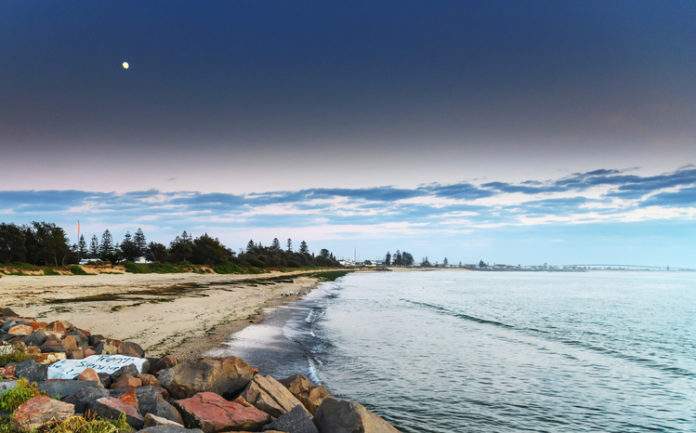NSW Government scientists may have found a solution to the coastal erosion issues plaguing Stockton, with three sources of offshore sand for beach renourishment identified.
Deputy Premier and Minister responsible for resources, John Barilaro today announced details about potentially suitable bodies of sand in the Stockton Bight; one located near the entrance to Newcastle Harbour and two located further east of the beach foreshore at Stockton.
“I promised we would deliver the necessary survey work to help find suitable sand in the area and the options announced today will now be reviewed by the City of Newcastle as part of its plan to tackle erosion at Stockton Beach,” Mr Barilaro said.
“These results follow a six-week exploration program carried out earlier this year and information about the options will be provided to the City of Newcastle Council to consider its next steps to improve the beach.
“During the survey, 91 surface samples and 44 core samples were retrieved from the seafloor and these were assessed for quality and suitability by scientists looking at factors such as sand size and colour.”
Mr Barilaro said the exploration and survey techniques used to help save Stockton Beach could potentially be used in the future to protect and preserve other beaches and coastal areas in regional NSW affected by severe erosion.
“This is the first time high-quality mapping data has been used in NSW to look for suitable sand for the purpose of beach renourishment and if proven successful for Stockton, the technology could be used in other locations,” Mr Barilaro said.
“There is no one size fits all approach to saving our beaches, but the use of offshore sand for renourishment is an approach tried and tested in other parts of the world, like the United States and in Europe, where coastlines are regularly battered by storms.
“Exploration has provided us with this critical information that could help resolve decades of erosion issues at Stockton Beach, and it would be fantastic if this approach could be used to ensure other beaches can be enjoyed for many more years to come.”
If required, the NSW Government will be available to assist the City of Newcastle with further investigation into the options provided for sand replenishment.
Details about the three sand bodies identified offshore from Stockton Beach:
- Inner Shelf Plain Sand Sheet – Extensive in Stockton Bight and occurs as broad ridges which look like a series of low sand dunes on the floor of the Stockton Bight. This sand is very similar to what is currently on Stockton Beach.
- Old Barrier Sands – These are old beach and dune sands, but seaward of the existing beach and dunes to the north of the Pinnacles Reef. These old barrier sands are up to 8 to 10 metres thick and are found on the sea floor in deeper water but are often covered by the younger Inner Shelf Plain Sand Sheet and other sediments in shallower water.
- Hunter River Sands – Located in the area between the Newcastle Harbour entrance and the Pinnacles Reef. The sand here includes sand from the old Hunter River intermixed with marine sands.


